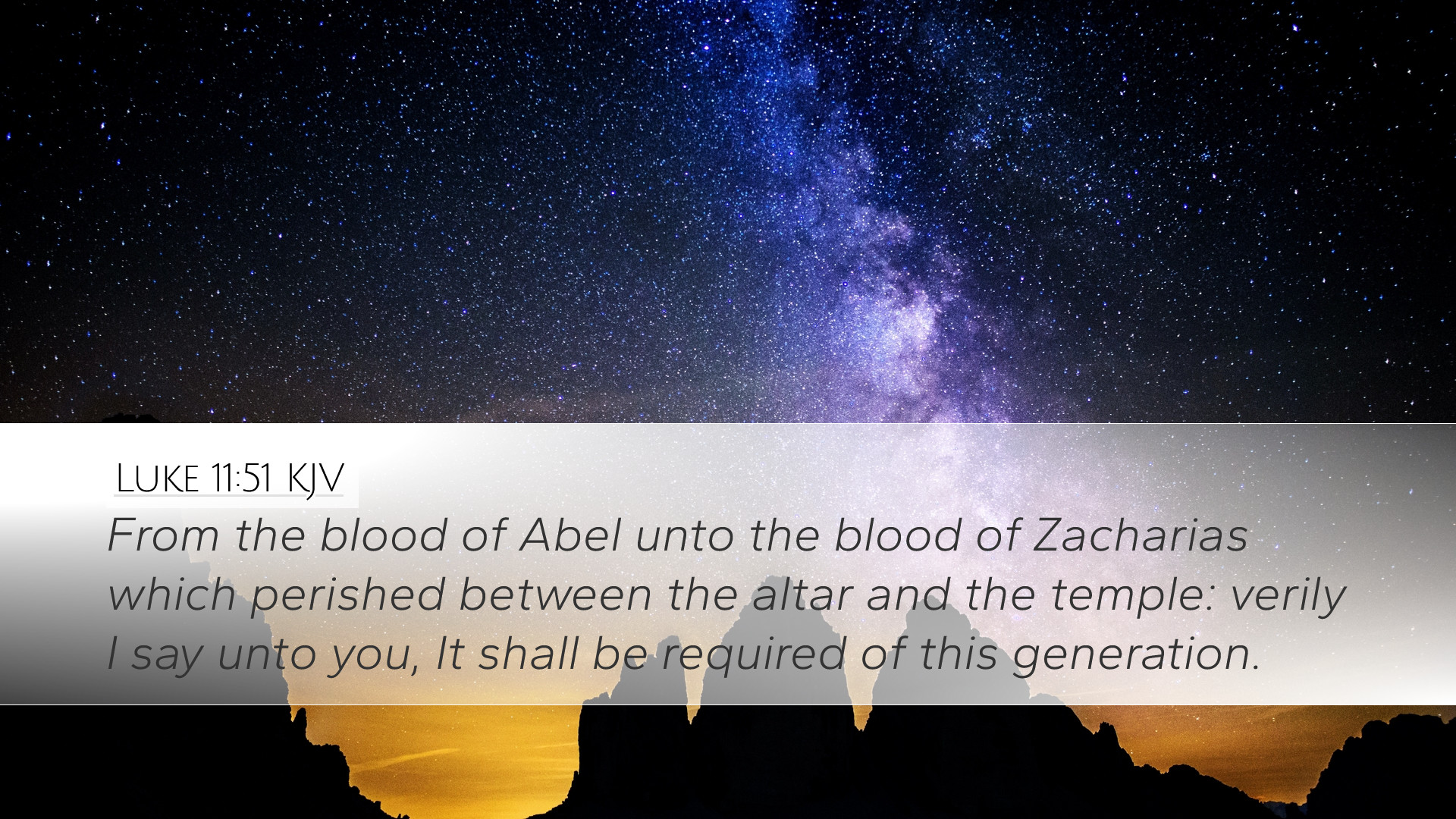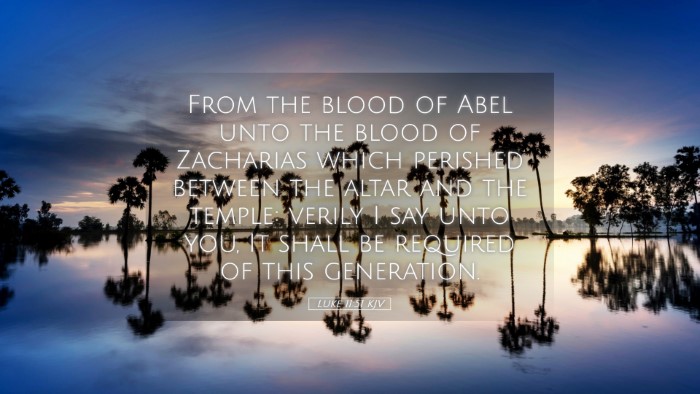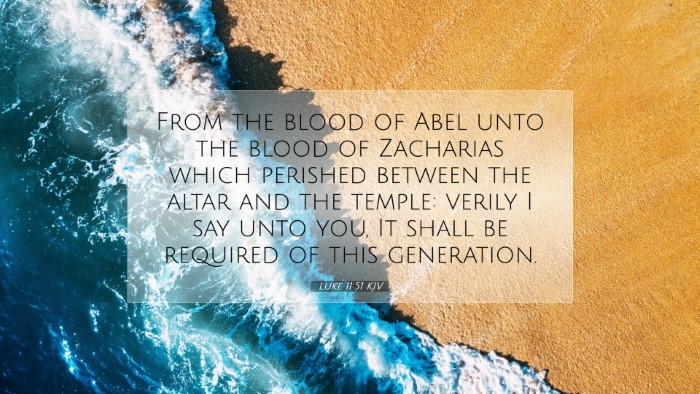Commentary on Luke 11:51
Scripture Reference: Luke 11:51 (KJV): "From the blood of Abel unto the blood of Zacharias, which perished between the altar and the temple: verily I say unto you, It shall be required of this generation."
Introduction
This profound statement by Jesus addresses the ongoing struggle between righteousness and wickedness throughout the history of Israel. In this verse, Jesus encapsulates the suffering endured by the prophets and righteous individuals, linking their bloodshed to the broader narrative of Israel's rebellion against God.
Contextual Analysis
A critical examination of the context surrounding Luke 11 reveals themes of prophecy, judgment, and the rejection of God's messengers. Jesus is speaking to a crowd that includes Pharisees and experts in the law, challenging their understanding and actions regarding God’s representatives throughout history.
- Historical Background: The mention of Abel connects to the earliest story of murder in Scripture (Genesis 4), while Zacharias refers to a later prophet likely killed for his truthfulness (2 Chronicles 24:20-22). This juxtaposition demonstrates the continuity of violence against God’s messengers.
- Literary Structure: This passage forms part of a larger discourse in which Jesus critiques the religious leaders for their failure to uphold the true spirit of the law, thereby inviting listeners to reflect on their own fidelity to God.
Theological Insights
Blood of Abel: Abel's death represents the first act of righteous suffering. Matthew Henry notes this as the "beginning of persecution," illustrating how righteousness often invites hostility.
Blood of Zacharias: The reference to Zacharias emphasizes the continued pattern of prophetic rejection. Albert Barnes highlights the gravity of this latter instance, pointing out that it occurred "between the altar and the temple," underscoring the sacredness of the place where such brutality happened.
Implications for the Current Generation
Jesus concludes with a stark warning that such acts of violence and rejection will be held against this generation. Adam Clarke emphasizes the extent of accountability, noting that this generation, with its knowledge of the law and its prophets, has compounded the sin of those who preceded them.
- Judgment on Religious Leaders: The message serves as an indictment against those who, having the truth, fail to act justly and righteously. There is a sobering reminder of the weight of responsibility carried by spiritual leaders.
- Call to Self-Examination: The verse invites pastors, theologians, and scholars to examine their own faithfulness to God and His messengers. Are they advocates for truth and justice in a world that often rejects it?
Practical Application
For pastors and students of the Bible, this verse is a call to reflect on the past while actively engaging in the present. Each generation must be vigilant against the historical tendency to marginalize or reject the voices of God.
- Encouragement to Vigilance: This scripture encourages believers to remain vigilant against societal and ecclesiastical trends that seek to silence God's truth.
- Promotion of Righteousness: The faithful must uphold righteousness, even at the cost of persecution, and be ready to stand for the truth like Abel and Zacharias.
- Advancement of God’s Kingdom: The church of today is called to learn from historical failures and to actively promote the Kingdom of God through love, mercy, and justice.
Conclusion
Luke 11:51 serves as both a warning and an exhortation—a vivid reminder of the past and a call to accountability in the present. By examining the weight of the blood shed throughout history, believers are urged to step into their roles as heralds of God's truth without fear or compromise. This verse encapsulates the ongoing battle between good and evil, thereby reinforcing the paramount importance of faithfulness in ministry and individual walk with God.


